- Home
- Herman Melville
Redburn. His First Voyage Page 16
Redburn. His First Voyage Read online
Page 16
Besides, of all sea-ports in the world, Liverpool, perhaps, most abounds in all the variety of land-sharks, land-rats, and other vermin, which make the hapless mariner their prey. In the shape of landlords, bar-keepers, clothiers, crimps, and boarding-house loungers, the land-sharks devour him, limb by limb; while the land-rats and mice constantly nibble at his purse.
Other perils he runs, also, far worse; from the denizens of notorious Corinthian haunts in the vicinity of the docks, which in depravity are not to be matched by any thing this side of the pit that is bottomless.
And yet, sailors love this Liverpool; and upon long voyages to distant parts of the globe, will be continually dilating upon its charms and attractions, and extolling it above all other seaports in the world. For in Liverpool they find their Paradise- not the well known street of that name-and one of them told me he would be content to lie in Prince's Dock till he hove up anchor for the world to come.
Much is said of ameliorating the condition of sailors; but it must ever prove a most difficult endeavor, so long as the antidote is given before the bane is removed.
Consider, that, with the majority of them, the very fact of their being sailors, argues a certain recklessness and sensualism of character, ignorance, and depravity; consider that they are generally friendless and alone in the world; or if they have friends and relatives, they are almost constantly beyond the reach of their good influences; consider that after the rigorous discipline, hardships, dangers, and privations of a voyage, they are set adrift in a foreign port, and exposed to a thousand enticements, which, under the circumstances, would be hard even for virtue itself to withstand, unless virtue went about on crutches; consider that by their very vocation they are shunned by the better classes of people, and cut off from all access to respectable and improving society; consider all this, and the reflecting mind must very soon perceive that the case of sailors, as a class, is not a very promising one.
Indeed, the bad things of their condition come under the head of those chronic evils which can only be ameliorated, it would seem, by ameliorating the moral organization of all civilization.
Though old seventy-fours and old frigates are converted into chapels, and launched into the docks; though the "Boatswain's Mate" and other clever religious tracts in the nautical dialect are distributed among them; though clergymen harangue them from the pier-heads: and chaplains in the navy read sermons to them on the gun-deck; though evangelical boarding-houses are provided for them; though the parsimony of ship-owners has seconded the really sincere and pious efforts of Temperance Societies, to take away from seamen their old rations of grog while at sea:-notwithstanding all these things, and many more, the relative condition of the great bulk of sailors to the rest of mankind, seems to remain pretty much where it was, a century ago.
It is too much the custom, perhaps, to regard as a special advance, that unavoidable, and merely participative progress, which any one class makes in sharing the general movement of the race. Thus, because the sailor, who to-day steers the Hibernia or Unicorn steam-ship across the Atlantic, is a somewhat different man from the exaggerated sailors of Smollett, and the men who fought with Nelson at Copenhagen, and survived to riot themselves away at North Corner in Plymouth;-because the modem tar is not quite so gross as heretofore, and has shaken off some of his shaggy jackets, and docked his Lord Rodney queue:-therefore, in the estimation of some observers, he has begun to see the evils of his condition, and has voluntarily improved. But upon a closer scrutiny, it will be seen that he has but drifted along with that great tide, which, perhaps, has two flows for one ebb; he has made no individual advance of his own.
There are classes of men in the world, who bear the same relation to society at large, that the wheels do to a coach: and are just as indispensable. But however easy and delectable the springs upon which the insiders pleasantly vibrate: however sumptuous the hammer-cloth, and glossy the door-panels; yet, for all this, the wheels must still revolve in dusty, or muddy revolutions. No contrivance, no sagacity can lift them out of the mire; for upon something the coach must be bottomed; on something the insiders must roll.
Now, sailors form one of these wheels: they go and come round the globe; they are the true importers, and exporters of spices and silks; of fruits and wines and marbles; they carry missionaries, embassadors, opera-singers, armies, merchants, tourists, and scholars to their destination: they are a bridge of boats across the Atlantic; they are the primum mobile of all commerce; and, in short, were they to emigrate in a body to man the navies of the moon, almost every thing would stop here on earth except its revolution on its axis, and the orators in the American Congress.
And yet, what are sailors? What in your heart do you think of that fellow staggering along the dock? Do you not give him a wide berth, shun him, and account him but little above the brutes that perish? Will you throw open your parlors to him; invite him to dinner? or give him a season ticket to your pew in church? — No. You will do no such thing; but at a distance, you will perhaps subscribe a dollar or two for the building of a hospital, to accommodate sailors already broken down; or for the distribution of excellent books among tars who can not read. And the very mode and manner in which such charities are made, bespeak, more than words, the low estimation in which sailors are held. It is useless to gainsay it; they are deemed almost the refuse and offscourings of the earth; and the romantic view of them is principally had through romances.
But can sailors, one of the wheels of this world, be wholly lifted up from the mire? There seems not much chance for it, in the old systems and programmes of the future, however well-intentioned and sincere; for with such systems, the thought of lifting them up seems almost as hopeless as that of growing the grape in Nova Zembla.
But we must not altogether despair for the sailor; nor need those who toil for his good be at bottom disheartened, or Time must prove his friend in the end; and though sometimes he would almost seem as a neglected step-son of heaven, permitted to run on and riot out his days with no hand to restrain him, while others are watched over and tenderly cared for; yet we feel and we know that God is the true Father of all, and that none of his children are without the pale of his care.
XXX
REDBURN GROWS INTOLERABLY FLAT AND STUPID OVER SOME OUTLANDISH OLD GUIDE-BOOKS
Among the odd volumes in my father's library, was a collection of old European and English guide-books, which he had bought on his travels, a great many years ago. In my childhood, I went through many courses of studying them, and never tired of gazing at the numerous quaint embellishments and plates, and staring at the strange title-pages, some of which I thought resembled the mustached faces of foreigners. Among others was a Parisian-looking, faded, pink-covered pamphlet, the rouge here and there effaced upon its now thin and attenuated cheeks, entitled, "Voyage Descriptif et Philosophique de L'Ancien et du Nouveau Paris: Miroir Fidele" also a time-darkened, mossy old book, in marbleized binding, much resembling verd-antique, entitled, "Itineraire Instructif de Rome, ou Description Generale des Monumens Antiques et Modernes et des Ouvrages les plus Remarquables de Peinteur, de Sculpture, et de Architecture de cette Celebre Ville;" on the russet title-page is a vignette representing a barren rock, partly shaded by a scrub-oak (a forlorn bit of landscape), and under the lee of the rock and the shade of the tree, maternally reclines the houseless foster-mother of Romulus and Remus, giving suck to the illustrious twins; a pair of naked little cherubs sprawling on the ground, with locked arms, eagerly engaged at their absorbing occupation; a large cactus-leaf or diaper hangs from a bough, and the wolf looks a good deal like one of the no-horn breed of barn-yard cows; the work is published "Avec privilege du Souverain Pontife." There was also a velvet-bound old volume, in brass clasps, entitled, "The Conductor through Holland" with a plate of the Stadt House; also a venerable "Picture of London" abounding in representations of St. Paul's, the Monument, Temple-Bar, Hyde-Park-Corner, the Horse Guards, the Admiralty, Charing-Cross, and Vauxhall Bridge. Also, a bulky
book, in a dusty-looking yellow cover, reminding one of the paneled doors of a mail-coach, and bearing an elaborate title-page, full of printer's flourishes, in emulation of the cracks of a four-in-hand whip, entitled, in part, "The Great Roads, both direct and cross, throughout England and Wales, from an actual Admeasurement by order of His Majesty's Postmaster-General: This work describes the Cities, Market and Borough and Corporate Towns, and those at which the Assizes are held, and gives the time of the Mails' arrival and departure from each: Describes the Inns in the Metropolis from which the stages go, and the Inns in the country which supply post-horses and carriages: Describes the Noblemen and Gentlemen's Seats situated near the Road, with Maps of the Environs of London, Bath, Brighton, and Margate." It is dedicated "To the Right Honorable the Earls of Chesterfield and Leicester, by their Lordships' Most Obliged, Obedient, and Obsequious Servant, John Gary, 1798." Also a green pamphlet, with a motto from Virgil, and an intricate coat of arms on the cover, looking like a diagram of the Labyrinth of Crete, entitled, "A Description of York, its Antiquities and Public Buildings, particularly the Cathedral; compiled with great pains from the most authentic records." Also a small scholastic-looking volume, in a classic vellum binding, and with a frontispiece bringing together at one view the towers and turrets of King's College and the magnificent Cathedral of Ely, though geographically sixteen miles apart, entitled, "The Cambridge Guide: its Colleges, Halls, Libraries, and Museums, with the Ceremonies of the Town and University, and some account of Ely Cathedral." Also a pamphlet, with a japanned sort of cover, stamped with a disorderly higgledy-piggledy group of pagoda-looking structures, claiming to be an accurate representation of the "North or Grand Front of Blenheim," and entitled, "A Description of Blenheim, the Seat of His Grace the Duke of Marlborough; containing a full account of the Paintings, Tapestry, and Furniture: a Picturesque Tour of the Gardens and Parks, and a General Description of the famous China Gallery, 6-c.; with an Essay on Landscape Gardening: and embellished with a View of the Palace, and a New and Elegant Plan of the Great Park." And lastly, and to the purpose, there was a volume called "THE PICTURE OF LIVERPOOL."
It was a curious and remarkable book; and from the many fond associations connected with it, I should like to immortalize it, if I could.
But let me get it down from its shrine, and paint it, if I may, from the life.
As I now linger over the volume, to and fro turning the pages so dear to my boyhood, — the very pages which, years and years ago, my father turned over amid the very scenes that are here described; what a soft, pleasing sadness steals over me, and how I melt into the past and forgotten!
Dear book! I will sell my Shakespeare, and even sacrifice my old quarto Hogarth, before I will part with you. Yes, I will go to the hammer myself, ere I send you to be knocked down in the auctioneer's shambles. I will, my beloved, — old family relic that you are;-till you drop leaf from leaf, and letter from letter, you shall have a snug shelf somewhere, though I have no bench for myself.
In size, it is what the booksellers call an 18mo; it is bound in green morocco, which from my earliest recollection has been spotted and tarnished with time; the corners are marked with triangular patches of red, like little cocked hats; and some unknown Goth has inflicted an incurable wound upon the back. There is no lettering outside; so that he who lounges past my humble shelves, seldom dreams of opening the anonymous little book in green. There it stands; day after day, week after week, year after year; and no one but myself regards it. But I make up for all neglects, with my own abounding love for it.
But let us open the volume.
What are these scrawls in the fly-leaves? what incorrigible pupil of a writing-master has been here? what crayon sketcher of wild animals and falling air-castles? Ah, no! — these are all part and parcel of the precious book, which go to make up the sum of its treasure to me.
Some of the scrawls are my own; and as poets do with their juvenile sonnets, I might write under this horse, "Drawn at the age of three years," and under this autograph, "Executed at the age of eight."
Others are the handiwork of my brothers, and sisters, and cousins; and the hands that sketched some of them are now moldered away.
But what does this anchor here? this ship? and this sea-ditty of Dibdin's? The book must have fallen into the hands of some tarry captain of a forecastle. No: that anchor, ship, and Dibdin's ditty are mine; this hand drew them; and on this very voyage to Liverpool. But not so fast; I did not mean to tell that yet.
Full in the midst of these pencil scrawlings, completely surrounded indeed, stands in indelible, though faded ink, and in my father's hand-writing, the following:-
WALTER REDBURN.
Riddough's Royal Hotel, Liverpool, March 20th, 1808.
Turning over that leaf, I come upon some half-effaced miscellaneous memoranda in pencil, characteristic of a methodical mind, and therefore indubitably my father's, which he must have made at various times during his stay in Liverpool. These are full of a strange, subdued, old, midsummer interest to me: and though, from the numerous effacements, it is much like cross-reading to make them out; yet, I must here copy a few at random:-
And on the opposite page, I can just decipher the following:
Turning over the next leaf, I unfold a map, which in the midst of the British Arms, in one corner displays in sturdy text, that this is "A Plan of the Town of Liverpool." But there seems little plan in the confined and crooked looking marks for the streets, and the docks irregularly scattered along the bank of the Mersey, which flows along, a peaceful stream of shaded line engraving.
On the northeast corner of the map, lies a level Sahara of yellowish white: a desert, which still bears marks of my zeal in endeavoring to populate it with all manner of uncouth monsters in crayons. The space designated by that spot is now, doubtless, completely built up in Liverpool.
Traced with a pen, I discover a number of dotted lines, radiating in all directions from the foot of Lord-street, where stands marked "Riddough's Hotel," the house my father stopped at.
These marks delineate his various excursions in the town; and I follow the lines on, through street and lane; and across broad squares; and penetrate with them into the narrowest courts.
By these marks, I perceive that my father forgot not his religion in a foreign land; but attended St. John's Church near the Hay-market, and other places of public worship: I see that he visited the News Room in Duke-street, the Lyceum in Bold-street, and the Theater Royal; and that he called to pay his respects to the eminent Mr. Roscoe, the historian, poet, and banker.
Reverentially folding this map, I pass a plate of the Town Hall, and come upon the Title Page, which, in the middle, is ornamented with a piece of landscape, representing a loosely clad lady in sandals, pensively seated upon a bleak rock on the sea shore, supporting her head with one hand, and with the other, exhibiting to the stranger an oval sort of salver, bearing the figure of a strange bird, with this motto elastically stretched for a border-"Deus nobis haec otia fecit."
The bird forms part of the city arms, and is an imaginary representation of a now extinct fowl, called the "Liver," said to have inhabited a "pool," which antiquarians assert once covered a good part of the ground where Liverpool now stands; and from that bird, and this pool, Liverpool derives its name.
At a distance from the pensive lady in sandals, is a ship under full sail; and on the beach is the figure of a small man, vainly essaying to roll over a huge bale of goods.
Equally divided at the top and bottom of this design, is the following title complete; but I fear the printer will not be able to give a facsimile:-
The Picture
of Liverpool:
or, Stranger's Guide
and Gentleman's Pocket Companion
FOR THE TOWN.
Embellished
With Engravings
By the Most Accomplished and Eminent Artists.
Liverpool:
Printed in Swift's Court,
And sold by Woo
dward and Alderson, 56 Castle St. 1803.
A brief and reverential preface, as if the writer were all the time bowing, informs the reader of the flattering reception accorded to previous editions of the work; and quotes "testimonies of respect which had lately appeared in various quarters — the British Critic, Review, and the seventh volume of the Beauties of England and Wales"-and concludes by expressing the hope, that this new, revised, and illustrated edition might "render it less unworthy of the public notice, and less unworthy also of the subject it is intended to illustrate."
A very nice, dapper, and respectful little preface, the time and place of writing which is solemnly recorded at the end-Hope Place, 1st Sept. 1803.
But how much fuller my satisfaction, as I fondly linger over this circumstantial paragraph, if the writer had recorded the precise hour of the day, and by what timepiece; and if he had but mentioned his age, occupation, and name.
But all is now lost; I know not who he was; and this estimable author must needs share the oblivious fate of all literary incognitos.
He must have possessed the grandest and most elevated ideas of true fame, since he scorned to be perpetuated by a solitary initial. Could I find him out now, sleeping neglected in some churchyard, I would buy him a headstone, and record upon it naught but his title-page, deeming that his noblest epitaph.

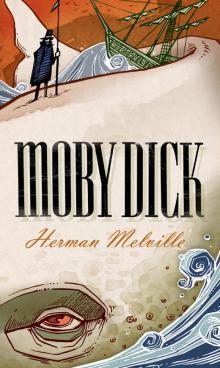 Moby Dick; Or, The Whale
Moby Dick; Or, The Whale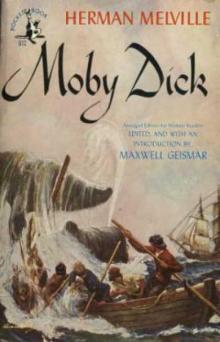 Moby Dick
Moby Dick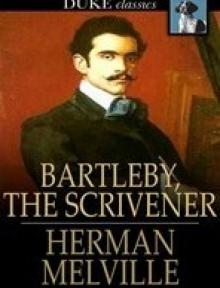 Benito Cereno and Bartleby the Scrivener
Benito Cereno and Bartleby the Scrivener Israel Potter: His Fifty Years of Exile (Annotated Edition)
Israel Potter: His Fifty Years of Exile (Annotated Edition) Billy Budd and the Piazza Tales
Billy Budd and the Piazza Tales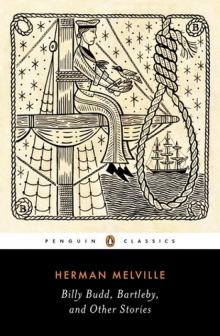 Billy Budd, Bartleby, and Other Stories
Billy Budd, Bartleby, and Other Stories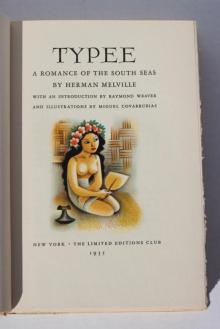 Typee: A Romance of the South Seas
Typee: A Romance of the South Seas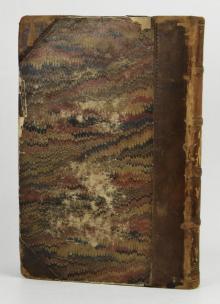 Omoo: Adventures in the South Seas
Omoo: Adventures in the South Seas White Jacket; Or, The World on a Man-of-War
White Jacket; Or, The World on a Man-of-War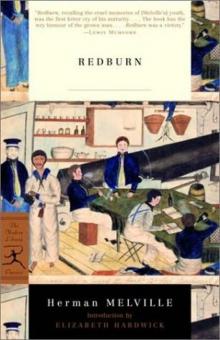 Redburn. His First Voyage
Redburn. His First Voyage Mardi: and A Voyage Thither, Vol. II
Mardi: and A Voyage Thither, Vol. II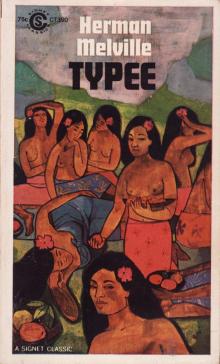 Typee
Typee The Paradise of Bachelors and the Tartarus of Maids
The Paradise of Bachelors and the Tartarus of Maids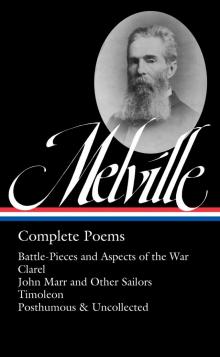 Herman Melville- Complete Poems
Herman Melville- Complete Poems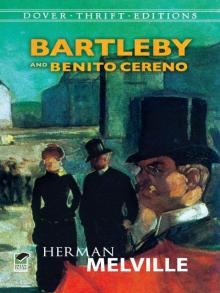 Bartleby and Benito Cereno
Bartleby and Benito Cereno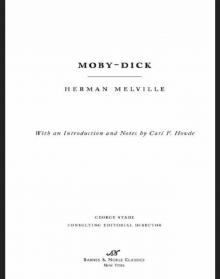 Moby-Dick (Barnes & Noble Classics Series)
Moby-Dick (Barnes & Noble Classics Series) Mardi and a Voyage Thither
Mardi and a Voyage Thither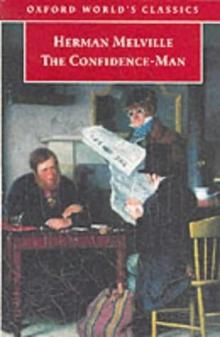 The Confidence-Man
The Confidence-Man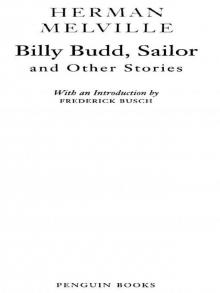 Billy Budd and Other Stories
Billy Budd and Other Stories Bartleby the Scrivener
Bartleby the Scrivener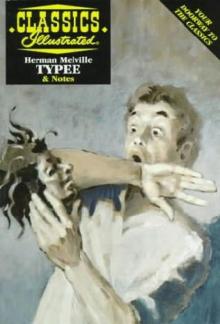 Typee: A Romance of the South Sea
Typee: A Romance of the South Sea I and My Chimney
I and My Chimney Billy Budd
Billy Budd Pierre, Or the Ambiguities
Pierre, Or the Ambiguities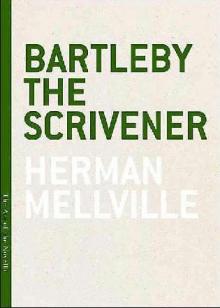 Bartleby, The Scrivener A Story of Wall-Street
Bartleby, The Scrivener A Story of Wall-Street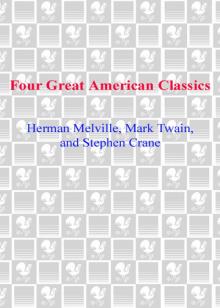 Four Great American Classics
Four Great American Classics White Jacket or, The World on a Man-of-War
White Jacket or, The World on a Man-of-War The Piazza Tales
The Piazza Tales Israel Potter. Fifty Years of Exile
Israel Potter. Fifty Years of Exile